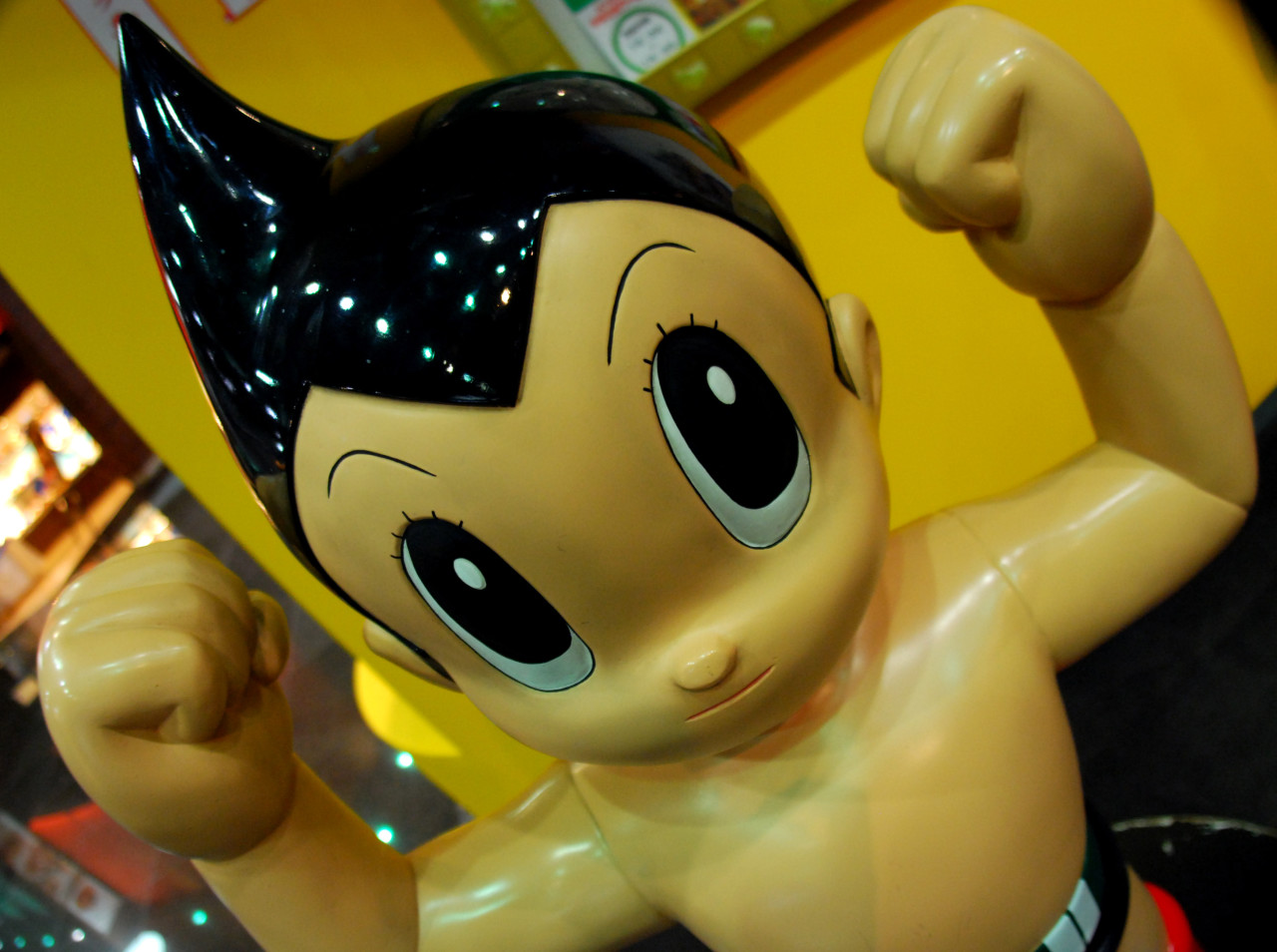Advertisement
Live Cartooning Brings 'The Walt Disney of Japan' To Life On Stage
ResumeA different kind of theater experience is having its New England premiere at the Boston Center for the Arts.
The story of "Astro Boy and the God of Comics" is told through live cartooning on stage — very fitting since the play is about the legendary father of Japanese comics and his famous superhero, Astro Boy.
"Astro Boy is an adorable robot that looks like a 10-year-old Japanese boy," explains the creator of the play, Natsu Onoda Power.
A theater professor at Georgetown University, Onoda Power has been obsessed with Astro Boy since she was a child in Tokyo. Like all comic book heroes, Astro Boy has a complex and sad back story. He was created as a replacement by a mad scientist whose flesh-and-blood son was killed in a car accident.
Unlike the human son, Astro Boy commands a string of superpowers: he can fly, amplify his hearing, tell if people are lying, and solve mathematical equations in one second.
"He has machine guns built into his rear end. He can speak 60 languages. He can use his eyes as searchlights. He has laser beams planted in his fingertips," Onoda Power continues.
Watch a 1963 episode on the birth of Astro Boy:
Astro Boy was a hit in Japan after Osamu Tezuka, a post-World War II cartoon artist, created the comic book character in 1951. At first, he was called the Mighty Atom, and he represented the optimism around science, technology and the peaceful production of atomic energy. Tezuka’s big-eyed robot also became the first Japanese animation — or anime — to be broadcast overseas. Astro Boy still has a cult following.
Writer Onoda Power is 40-years-old now, and she credits her parents for introducing her to Astro Boy and other "manga" — the Japanese word for "comics" — by Tezuka.

"When I was growing up Tezuka’s comics were like vintage comics," Onoda Power says. "I want to say I started reading them in second grade and I just continued to love them. And my brother and I started making our own comics, too."
Flash forward to the early 2000s when Onoda Power started developing her play. It premiered in D.C. in 2012, where The Washington Post called it one of the top three theater experiences of the year. The multimedia piece has three plot lines: the story of Astro Boy’s character; the history of the comic book and TV series; and the life of creator Tezuka.
"Well, he was just hugely revered. Other cartoonists of that period — 50s and 60s — a lot of them started out as his admirers and assistants," explains Onoda Power.
She says the Tezuka — who’s also known as “The Walt Disney of Japan” — was eccentric, intense, brutal and completely obsessed with work. He slept in his studio, according to Onoda Power, and wouldn’t see his family for days at a time.
"His last words were, 'Please — I’m begging you — let me work!'"
Obsession with work is a major theme in the play. It connects Tezuka to the mad scientist who made Astro Boy, but Onoda Power says it also speaks to her technically elaborate, science fiction show.
The show requires a lot of people, technology and art objects — including a robot that the actors build on stage. There are sound effects, projections and live cartooning. Big swaths of paper are meticulously taped to the stage floor and the wall behind it before each rehearsal and show.
One scene features the actors illustrating how the little boy, who Astro Boy replaces, dies in the car accident.
"So people come in and draw an intersection, and then draw the cars crashing, and then draw dead, you know?" says Onoda Power.

"What you see is a very messy, athletic, theatrical event that is unlike anything I’ve been a part of," actor Clark Young says.
Young plays a few characters in Onoda Power's play, including Tezuka.
"I did that in D.C. as well, so it’s very close to my heart because he’s so close to Natsu’s heart, and she, like Tezuka, is a hard worker. She never stops working."
Onoda Power’s play is about the magic of creation, says Young, and Tezuka’s message was one of peace, especially coming in the years after the atomic bomb was dropped on Japan.
"You know he wanted to create something that children could love that also was a friendly reminder that violence doesn’t necessarily have to be the answer," Young says.
That’s one of the play’s many messages too, delivered by a bright-eyed little boy robot obsessed with saving the world.
“Astro Boy and the God of Comics” runs through August 16 at the Boston Center for the Arts.

